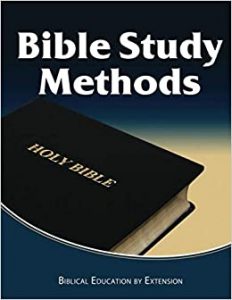
Shownotes
Welcome to Day 1464 of our Wisdom-Trek, and thank you for joining me.
This is Guthrie Chamberlain, Your Guide to Wisdom
Bible Study – A Variety of Methods – Meditation Monday
Wisdom - the final frontier to true knowledge. Welcome to Wisdom-Trek! Where our mission is to create a legacy of wisdom, to seek out discernment and insights, to boldly grow where few have chosen to grow before. Hello, my friend, I am Guthrie Chamberlain, your captain on our journey to increase Wisdom and Create a Living Legacy. Thank you for joining us today as we explore wisdom on our 2nd millennium of podcasts. This is Day 1464 of our Trek, and it is time for Meditation Monday. Taking time to relax, refocus, and reprioritize our lives is crucial in order to create a living legacy. For you, it may just be time alone for quiet reflection. You may utilize structured meditation practices. In my life, Meditation includes reading and reflecting on God’s Word and in prayer. It is a time to renew my mind, refocus on what is most important, and making sure that I am nurturing my soul, mind, and body. As you come along with me on our trek each Meditation Monday, it is my hope and prayer that you, too, will experience a time for reflection and renewing of your mind.
We are continuing our series this week on Meditation Monday as we focus on Mastering Bible Study through a series of brief insights from Hebrew Scholar, Dr. Michael S. Heiser. Our current insights are focusing on study habits to build a strong foundation. Today let us meditate on:
Bible Study – A Variety of Methods
· Insight Fifteen: Use a Variety of Methods in Bible Study
Variety is the spice of life, so the saying goes. It’s good advice for Bible study. The principle is obvious. While there’s security in routine, it’s nice to mix things up once in a while or try something new. Change invites our problem-solving intelligence to kick in and, consequently, to stimulate our brain.
There are a lot of approaches to Bible study. You might want to try as many as you can discover, or master just a few.
Since most people graduate to Bible study from Bible reading, the verse-by-verse method is often where people start. The technique involves moving through a paragraph or passage looking up cross-references, picking words to study, and figuring out what every sentence means within the larger unit.
Topical Bible study is an entirely different method. Topical Bible study is just what it sounds like—discovering what the Bible says about a given topic. This method would require tools that can get you started in sketching out a topic, like Bible dictionaries. You need to know upfront what the keywords are that relate to a given topic. For example, if you wanted to study Old Testament sacrifices, you wouldn’t just use a concordance to look up the word “sacrifice.” You’d also want to look up words like “offering,” “blood, “sprinkle,” and “atone. Once you have a range of keywords, you’ll discover the key passages. Another method is doing character sketches, also known as biographical Bible study. This approach focuses on a single Bible character, searching for every passage where he or she appears.
Another method is doing character sketches, also known as biographical Bible study. This approach focuses on a single Bible character, searching for every passage where he or she appears.
In this method, you need to be on the alert for where the character’s name doesn’t appear, too. Sometimes a character is just named by a pronoun (“he” or “she” did this or that). The goal is to build a profile of what that person was like. How did your character react in given circumstances? What can the episodes of his or her life tell you about their personal strengths and weaknesses? How did they relate to God? Sometimes unnamed characters can be the focus of this kind of study. A Bible study on women in the Gospels, named or unnamed, could be quite interesting.
Even this handful of methods can keep you engaged for a long time. Be on the lookout for others, and try something new!
· Insight Sixteen: Questions Are Not Answers
 There’s nothing better for keeping you humble as a Bible teacher than a critique by your spouse or close friends.
There’s nothing better for keeping you humble as a Bible teacher than a critique by your spouse or close friends.
Let me present a scenario. Say that I have a habit of leaving questions unanswered when I taught Scripture, I’ll admit that I like to do that. My reason is that people need to know that there’s a lot to think about in the Bible—that they don’t have it down like they think they do. I also want them to keep coming back for more.
While I think my reasons make sense, I also have to admit that being critiqued is valid and essential too. People don’t like to be left in an intellectual and spiritual lurch when it comes to the Bible. Many people desire definitive answers to their Bible questions. Bible scholars thrive on open questions. It’s like releasing a squirrel in front of a dog. I realize that most of us want closure on whatever is being talked about. Those of us who spend a lot of time in Bible study need to remember that, since we’re often the ones who will be teaching others.
It’s a hard lesson to learn. Serious Bible students like pursuing questions too. There’s a certain “thrill of the hunt” feeling that comes with detecting a problem, framing it, and then attacking it. There’s also a compulsion, to be honest. Sometimes conclusions really aren’t available or aren’t clear in our minds. Think of how frustrating it would be if, in the process of doing research, the sources you depended on were ambivalent, never quite coming to a conclusion.
This advice is pertinent to Bible study itself. We should seek conclusions when we study Scripture, especially when a passage is crucial to some point of doctrine. Granted, the Bible is more explicit in some places than others. Still, if your Bible study results in everything being open-ended, there’s a problem with either your method or analysis, and perhaps both. The moral of this story is that you need to land the plane in Bible study, even though you know it’ll take off again. It’s okay to reach tentative conclusions and allow yourself to revisit an issue later. At least come down somewhere, for your sanity and the sanity of others.
Study this Book of Instruction continually. Meditate on it day and night so you will be sure to obey everything written in it. Only then will you prosper and succeed in all you do.
That is a wrap for today’s Meditation, next week; we will continue our trek on Meditation Monday as we take time to reflect on what is most important in creating our living legacy. On tomorrow’s trek, we will explore another wisdom quote. This 3-minute wisdom supplement will assist you in becoming healthy, wealthy, and wise each day. Thank you for joining me on this trek called life. Encourage your friends and family to join us and then come along tomorrow for another day of ‘Wisdom-Trek, Creating a Legacy.’  If you would like to listen to any of the past 1463 daily treks or read the daily Journal, they are available at Wisdom-Trek.com. I encourage you to subscribe to Wisdom-Trek on your favorite podcast player so that each day will be downloaded to you automatically.
If you would like to listen to any of the past 1463 daily treks or read the daily Journal, they are available at Wisdom-Trek.com. I encourage you to subscribe to Wisdom-Trek on your favorite podcast player so that each day will be downloaded to you automatically.
Thank you for allowing me to be your guide, mentor, and most importantly, I am your friend as I serve you through this Wisdom-Trek podcast and Journal.
As we take this Trek of life together, let us always:
- Live Abundantly (Fully)
- Love Unconditionally
- Listen Intentionally
- Learn Continuously
- Lend to others Generously
- Lead with Integrity
- Leave a Living Legacy Each Day
I am Guthrie Chamberlain….reminding you to ’Keep Moving Forward,’ ‘Enjoy your Journey,’ and ‘Create a Great Day…Everyday’! See you tomorrow!